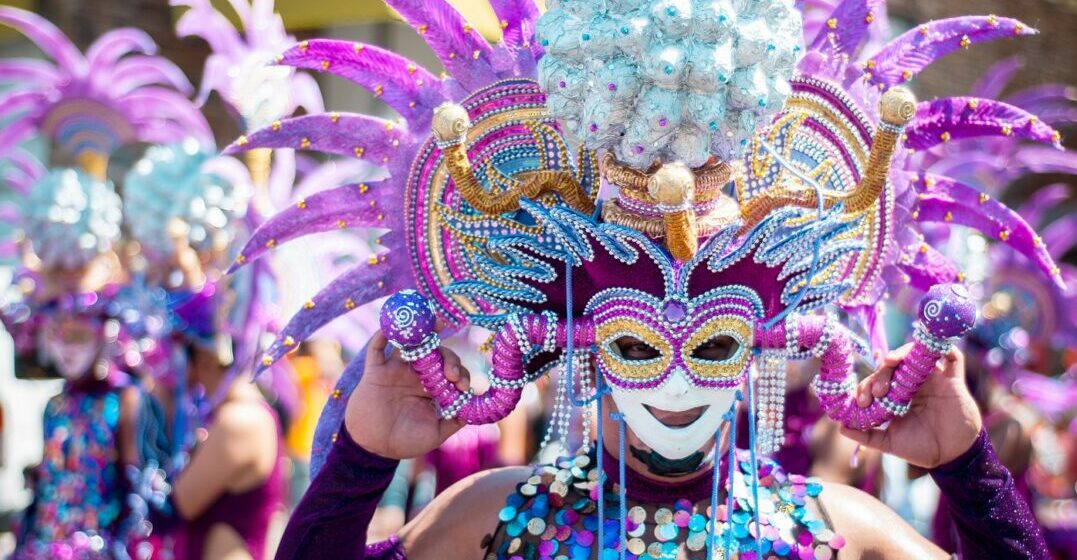Updated on January 5, 2024

The 5 best French festivals you should attend

Throughout the year and across France, many festivals are taking place to celebrate different forms of arts as well as local traditions. Whatever your hobbies or interests are, you are bound to find several festivals that appeal to you. The trick then is to pick one (or maybe two).
To help you choose, we’ve selected five very different and very popular French festivals. They occur in various cities and at various times of the year. They revolve around different customs and art forms. Some are more glitzy than others. But they all allow you to immerse yourself in French popular culture.
Undoubtedly the most star-studded and famous French festival across the world, the Festival de Cannes welcomes actors, directors, producers and, of course, paparazzi for a frantic 12 days in May every year. Though it was created in 1939, the first Cannes Film Festival only took place in 1946, after the end of World War II. Ever since then, the luxurious seaside city of Cannes, situated in the heart of the French Riviera, has been the perfect setting to dazzle and be dazzled. But don’t be fooled by all the glitter: The mission of the festival is to promote both highly popular and more highbrow and artistic films.
Each year, an appointed président selects the membres du jury (jury members) to watch and assess films that are yet to be released, in order to choose the winners of the various prizes, including the palme d’or, the main award in the shape of a golden palm leaf honoring the best movie.
Leaving the world of the silver screen, but staying in the French Riviera, at only about 20 miles from Cannes, Nice is home to another world-famous festival. Every year, toward the end of February or early March, the Carnaval de Nice takes over the city for 15 days. Alongside Rio de Janeiro, Venice and New Orleans with Mardi Gras, it is one of the most famous and joyous carnivals around the world. It’s also one of the oldest ones, as it has been celebrated since the Middle Ages. In addition to fireworks, three stunning parades take place during the celebrations: a day parade, a night parade and a flower parade, each with an average of 17 flamboyant floats, colorful costumes and over a thousand dancers and musicians.
With its first edition dating back to 1947, the Festival d’Avignon is nearly as old as the Festival de Cannes. But if Cannes is all about the silver screen, Avignon focuses on live performance arts, in particular the theater. Every July, the historical center of the city, including the iconic cour d’honneur du Palais des papes (the honor yard of the popes’ palace), hosts various plays, as well as musicals, dance shows and even mimes. It’s without a doubt the largest theater festival in France, with tens of thousands of people coming every summer to enjoy the performances and the festive atmosphere. Small piece of advice: If you plan on going to see a play, it might be worth reading the French text first. Even if you’re advanced, it might help you appreciate the performance better, without spending too much effort trying to understand the actors.
With Lyon being famous throughout France for its food and wine, it would have been tempting to focus on the Fête du Beaujolais Nouveau (Festival of the New Beaujolais) taking place in town on the third Thursday of November. But just a couple of weeks later, around December 8, another festival takes over the city. This time, it is the eyes rather than the mouth that are in for a treat. The Fête des Lumières is originally a religious celebration to give thanks to the Virgin Mary: For the occasion, all the inhabitants put candles in colored glass tealight holders on their windows and balconies, making the city sparkle. Nowadays, the festival has gone bigger, with the city’s buildings and bridges glowing with multicolored lights and breathtaking light installations from global artists.
There are many music festivals across France throughout the year, culminating in the Fête de la musique on the first day of summer, when both amateur and professional musicians perform in venues and in streets to celebrate music in all its forms. But the Festival interceltique de Lorient, which takes place over 10 days every August, is as much a cultural event as a musical one: since 1970, it has been celebrating Celtic music from Brittany (a French region with strong Celtic influences) and from around the world. Expect to hear some bagpipes and traditional songs, as well as contemporary artists giving the genre a more modern twist.
Cinema, theater, music, carnival and light show… Our list of five of the biggest French festivals are definitely varied in genre and style. Depending on the time of year and your own taste, you are bound to find one to please your eyes and your ears. It’s a great opportunity to experience some of the best of what French popular culture has to offer in a lively and fun atmosphere.